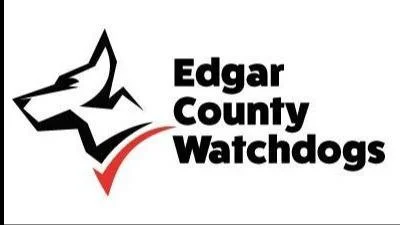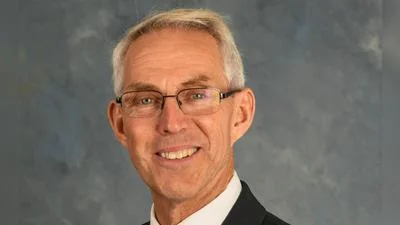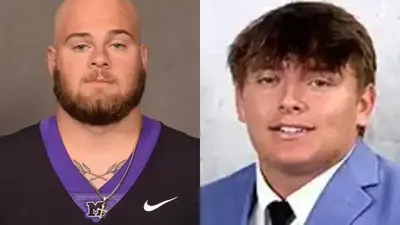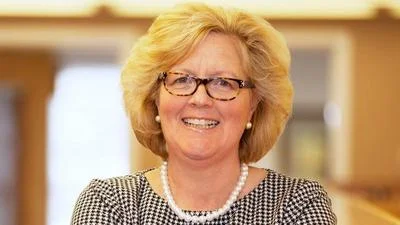Carle Richland Memorial Hospital issued the following announcement on July 19.
When some people hear the term hospice, they sometimes assume the worst. Hospice has become synonymous with “giving up hope,” when in actuality, hospice care is simply that: care. Or as Hospice of Southeastern Illinois at Carle puts it:
“Adding life to days when days cannot be added to life.”
Hospice care is designed to provide support to patients during this transitional phase of life. By focusing on patient wellness and quality of life, hospice care allows patients to live their final days at home with comfort, respect, and dignity.
But hospice care doesn’t just provide support to patients, but to their loved ones as well. Richland County resident, Frank M. Miller, knows first-hand how helpful hospice can be.
Frank M. works at his family-owned business, Miller Office Equipment in Olney, IL, formerly owned and operated by his late father, Frank F. Miller before his passing in May of 2017.
Prior to his passing, Frank M. began to notice a decline in his father’s health, as evidenced by his frequent absences from the office along with his pre-existing Parkinson’s diagnosis.
After being in and out of the hospital, Frank M. and his siblings did the best they could in taking care of their father, but eventually, Frank M. began to hear the same things from family members and others:
“We need to get hospice in here,” “We’re not taking proper care [of him],” “He needs more in-house care than you can handle,” etc.
“It gets to the point where you don’t know what you think you should know and you need help,” said Frank M.
After getting in contact with Hospice of Southeastern Illinois at Carle Richland Memorial Hospital, Frank M. and his siblings were able to make sure their father received the care that he desperately needed.
Even when Frank M. and his family had concerns, the hospice staff had no problem with serving them as well.
“They would ask us, ‘Do you have a question?” Frank M. said. “Or they would tell you what they’re doing and if you had a question you can say, ‘What are you doing? What’s that? Why are you doing that?’ I mean they were just super.”
“I think it made it really easy on our family members. That’s the main thing. The patient themselves aren’t aware so much about what’s going on but the family sure is and it makes a big difference.”
When asked if there were any negative connotations or misunderstandings that come with hospice care, Director of Home Care Services at Carle Richland Memorial Hospital, Ginger White, said, “Oh yes. Especially until they or someone they know has hospice and they realize everything we do for them. Then they’ll say, ‘You provided us with things we didn’t even realize that we were going to need.’”
Hospice was not only able to provide Frank F. with medication to manage his pain, but they were also able to give him a hospital bed for his home that granted him better mobility.
“Additional equipment that is not covered by a patient’s insurance, Medicare, or Medicaid is covered through our Hospice Foundation and donations,” said White. “So, we are able to give [patients] the things they need. We actually built a ramp for one of our patients this year. We also provided a large print Bible for a patient that requested it. So, the money that’s donated to us goes to care for the patients.”
Apart from access to medical equipment and supplies, the list of things that Hospice of Southeastern Illinois provides are:
- Skilled nursing, home health aides, and trained volunteer visits
- Medications for Patient Comfort
- Physical, Occupational, and Speech Therapy
- Dietary Counseling
- Grief Counseling (for family members)
- Social Worker visits
- Clergy Services
Examples of opportunities that Hospice of Southeastern Illinois has provided in the past are:
- Outdoor Adventures
- Anniversary Celebrations
- Favorite Meal
- Independence Party
- Surprise Birthday Celebrations
- Farm Tours
- Special Road Trips
- Early Christmas
“They called me and wrote me letters,” said Frank M. “Matter of fact, I think I actually got something like that a week ago. So, they follow up and they stay on top of it.”
When asked for advice about what to do when a family member needs hospice care, Ginger White said: “Don’t be afraid of it. We’re here to help. We’re there to help the transition and we’re very knowledgeable.”
Frank Miller also advises: “Don’t try to do it alone. You can’t do it alone. I’m sure [me and my family] thought we could, but there’s a point where you’ve just got to get help.”
“[Hospice care] just makes things so much easier. You’re so much more aware of what’s going on, you’re so much smarter about the situation, and you know what’s coming. The community needs them.”
If you would like to donate to Hospice of Southeastern Illinois, you may contact Hospice Secretary and Volunteer Coordinator at CRMH Home Health Services, Nancy Volk, at (618) 395-7340 ext. 4696.
And to learn more about hospice care and all that Carle Richland Memorial Hospital has to offer, please call Hospice of Southeastern Illinois at (618) 392-2745 or learn more online.
Original source can be found here.

Source: Carle Richland Memorial Hospital






 Alerts Sign-up
Alerts Sign-up